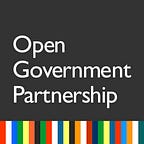Here’s the To Do List for the New EU Commission
The new Commission has a unique chance to be boldly open.
By Paul Maassen, Chief of Country Support, OGP
This opinion article was originally posted on Apolitical. You can view the original article here.
The last few months and weeks we have seen EU democracy at full play.
The European elections in May had the highest turnout in years and brought a record number of women to the European Parliament and Commission. The selection process for the next generation of European leaders that followed was a classic backroom poker game where political and personal interests — and the occasional feud — led to much palace intrigue.
The demise of the Spitzenkandidaten system and various controversial commissioner nominations serve as a stark reminder that democracy should not stop at the ballot box. Instead, a truly open government should rely on citizens’ input and scrutiny every day, not just on election day.
In order to deliver on a bold new European agenda that takes into account citizens’ interests and input, the new Commission must leverage the open government approach, giving a new impetus to democracy. In the words of new Commission President, Ursula von der Leyen: “This is our joint responsibility. Democracy is more than voting in elections every five years. It is about having your voice heard and being able to participate in the way society is built.”
Let’s together select a handful of policy areas that are important to European citizens today — migration, climate, job security — and open these up to honest, meaningful, and responsive dialogue across the continent
In order to learn from open government initiatives and to provide a concrete roadmap for the new Commission on citizen engagement, OGP asked leading practitioners and thinkers from all 28 EU states to contribute their ideas to our new publication Do We Trust Democracy? A Future Agenda for Europe. Their responses provide us with a bold and brave way forward — a way that will not only lead to more informed and inclusive decision-making, but also to a healthier democracy at within and outside the EU. Here are clear areas of agreement and opportunity:
Give citizens a say
The outgoing European Commission has put in place a strong foundation of transparent and evidence-based policy-making.
The incoming one must build on that by infusing it with richer and deeper participation and improving responsiveness. This isn’t just nice rhetoric. Plenty of EU governments have already done it — both at the national and local level. In Madrid, more than 400,000 registered users of the online platform Decide Madrid vote on where and how to spend public funds, such as on sidewalks, homeless shelters or parks.
Germany pioneered a competition to see which towns were best in supporting and integrating migrants. Estonia and Croatia have delivered platforms for citizens to influence policy-making beyond the ballot box. Ireland convened binding referendums to decide constitutional amendments that reflect new societal norms.
Let’s together select a handful of policy areas that are important to European citizens today — migration, climate, job security — and open these up to honest, meaningful, and responsive dialogue across the continent.
Use Technology to Empower and Protect Citizens
Open government practitioners in Europe advocate for working with and regulating tech companies, ultimately shaping a digital era that works for citizens and protects societies from manipulation. This is already happening in France and the Netherlands where reformers are using the OGP platform to increase the transparency of government algorithms used to allocate resources and make decisions.
More ambitious results are within Europe’s grasp, and European norms have the potential to grow into global ones
In Italy, the OpenCoesione initiative put the details of one million projects, amounting to 100 billion Euros of EU funding — ranging from small student loans to highway bridges — online in a very user-friendly way. In this way citizens, journalists, and civil society get an opportunity to actively use the data and monitor spending.
Why not take this work further? It is imperative to make technology work for people, and not the other way around. There is without doubt an opportunity for the new Commission to plot a course for digital governance that aligns the interests of the state and private sector with those of the public.
Show collaboration and leadership inside the EU and across the globe
Europe is well placed to lead on cross-border challenges as it has successfully shown by ending roaming costs, improving environmental protection and air quality, and introducing global online privacy safeguards.
EU countries are continuing to raise the bar on lobby transparency, anti-money laundering, data privacy, and whistleblower protections.
One interesting example is how across Europe, from the UK to Norway to Slovakia, governments are adopting beneficial ownership transparency policies and open contracting standards to fight corruption. Corruption destroys trust in leaders and can result in citizens becoming reluctant, if not hostile, to working with governments.
More ambitious results are within Europe’s grasp, and European norms have the potential to grow into global ones. It is this type of leadership and example that is needed to keep democracy healthy.
The EU should be unapologetic in learning from and adapting the inspiring innovations that OGP has helped pioneer. The work to open up governments taking place across Europe can provide the inspiration and impetus to a new array of bold policies to counter the major challenges facing our European Union, and indeed the world — co-created between its leaders and citizens.
For the latter to be bothered, the former now need to be brave. The backbone is there — it is now time to invest in the muscle and soul.
